Dr. Aram Ghalali, a distinguished oncologist and biotechnologist at Harvard Medical School, was honored earlier this year in Marquis Who’s Who as one of 2024’s Top Educators and Top Scientists for his “dedication, achievements, and leadership in surgical instruction,” according to the company’s website. These recognitions underline not only Ghalali’s contributions to the field of medical education, but also the resilience, determination, and talent that he has demonstrated to reach this point.
Born in Sulaymaniyah in the Kurdistan Region, Ghalali has faced adversity throughout his life. When Ghalali was nine years old, his father, who had dedicated his life to serving the people of Kurdistan, was tragically assassinated. When he was 14, he and his family made the difficult decision to leave Kurdistan behind and seek refuge in Sweden amid a civil war.
The arduous journey to Sweden took two years, with the family making the journey across Europe largely on foot. At one point on the journey, they were separated from each other, and Ghalali arrived in Sweden at the age of 16 not knowing where his family members were. Fate, however, smiled upon him, and he was soon reunited with his loved ones. It was during his time in Sweden that his passion for medicine and scientific research began to blossom. Inspired by his experiences and driven by a desire to make a difference, he embarked on a remarkable academic journey.
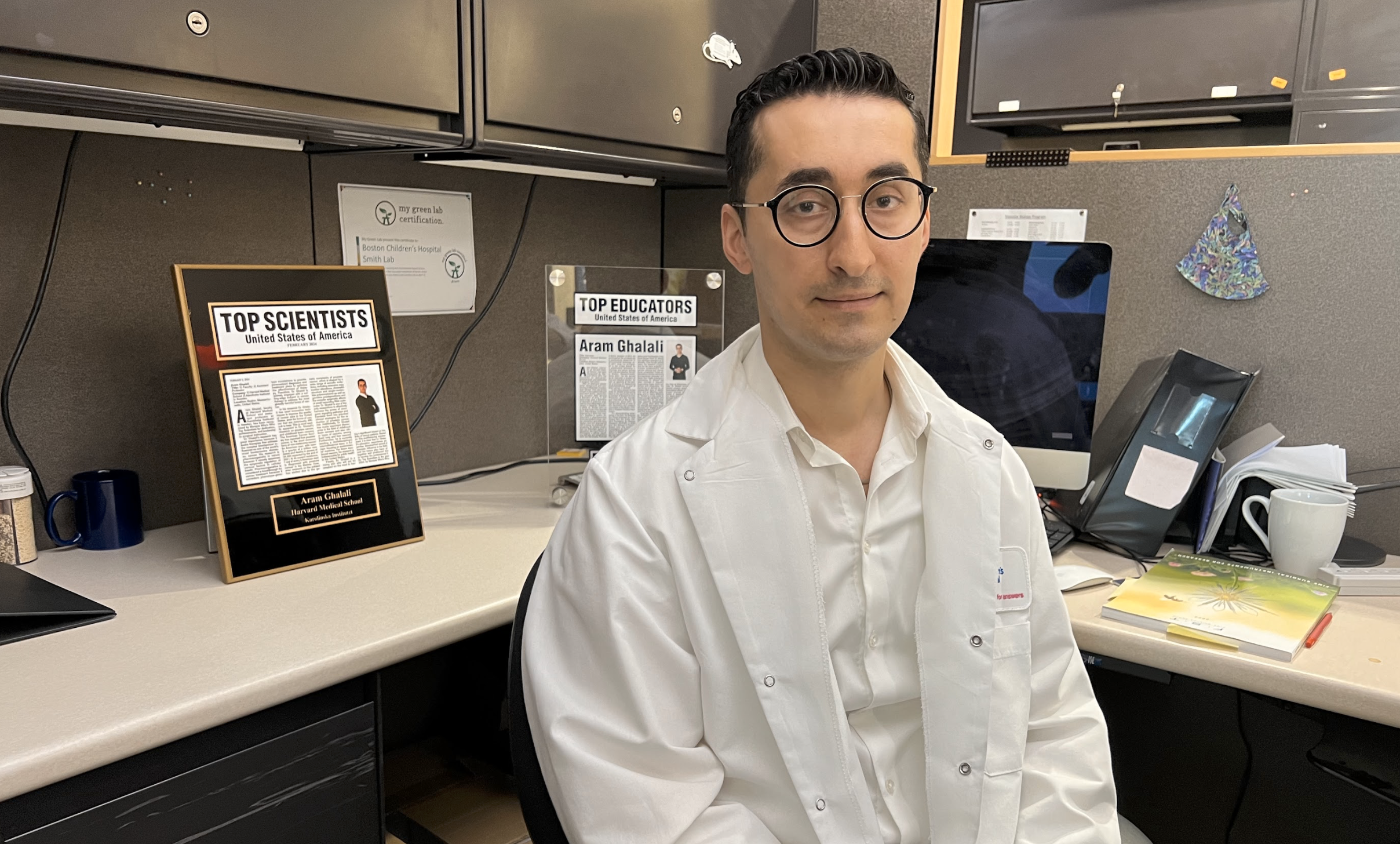
Substantive research
As a child, Ghalali was placed in a vocational school. He had missed schooling for several years, but his strong desire to learn was quickly recognized. He earned a Bachelor of Arts in biotechnology and a Bachelor of Science in chemical engineering from Malardalens University in Eskilstuna, Sweden, and then went on to receive two master’s degrees: one in quality assessment in pharmaceutical sciences/biotechnology and another in cancer prevention and pharmacy design.
Later, he earned a doctorate in cellular signaling pathway and epigenetics from the Karolinska Institute in Solna, Sweden, where he worked as a postdoctoral researcher in environmental toxicology. In 2017, he received an offer from Harvard Medical School for a second postdoctoral fellowship in oncology and cancer biology. Four years later, he was promoted to the faculty at Harvard, where he began focusing on research concerning brain cancer in children and aggressive prostate cancer. He remains an assistant professor at the Karolinska Institute.
I met Ghalali at Boston’s Children Hospital in May 2024, and he accompanied me across the street to the hospital’s lab, where he spends most of his time researching and conducting scientific experiments.
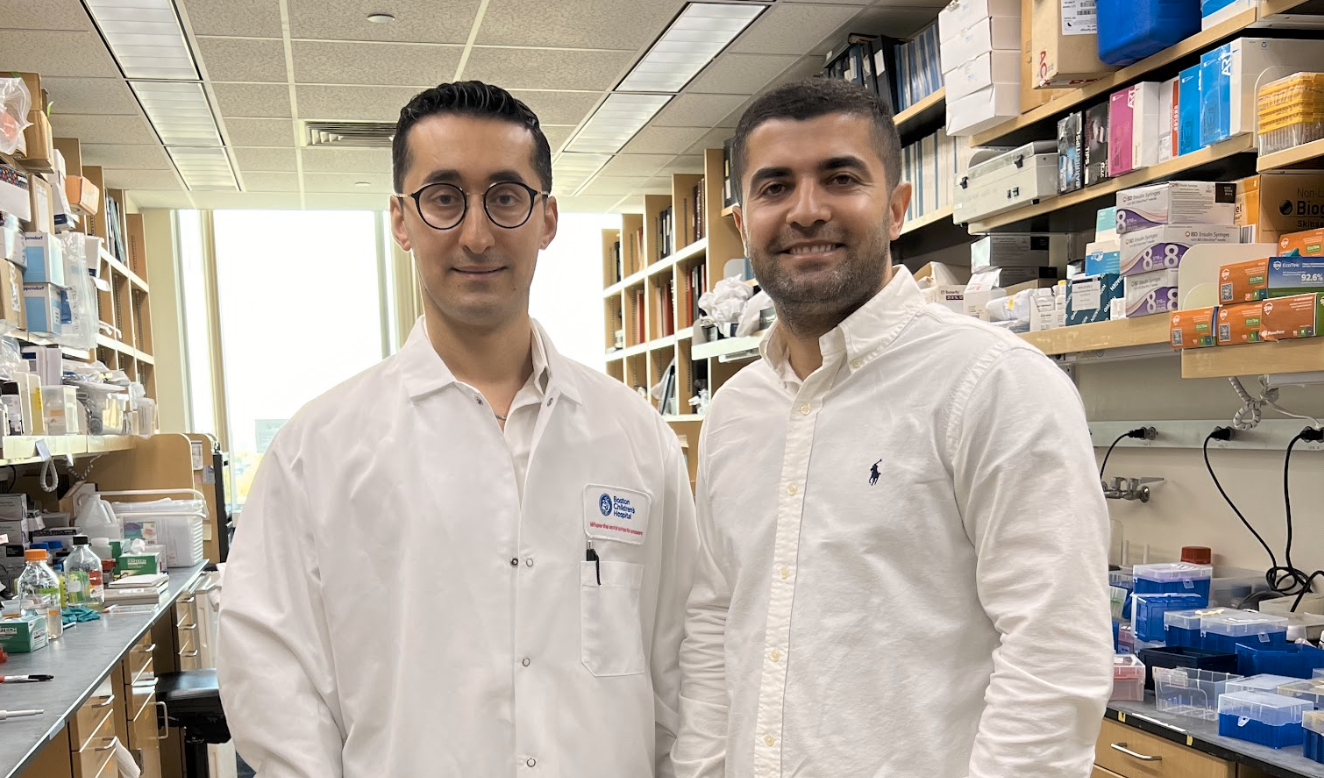
Before jumping into questions related to his homeland and being a Kurd, I wanted to know more about his vascular biology research. After explaining cometabolism and drug development for late-stage forms of cancer, Ghalali mentioned several interesting findings that he hopes will make a difference for patients.
For example, new diagnostic biomarkers could be used to determine whether a patient has a particular medical condition for which treatment may be indicated, such as for different brain vascular abnormalities or diseases. Ghalali is also in the process of publishing his latest findings on the most aggressive form of medulloblastoma, a type of childhood brain cancer. This study examined hundreds of patients, finding a protein that can be targeted by a new medication that might lead to a better prognosis.
His team at Harvard also studies the deadliest form of brain cancer in children – diffuse intrinsic pontine glioma – and has made notable strides. Ghalali works on several other projects as well, including developing alternative therapy options and new treatments.
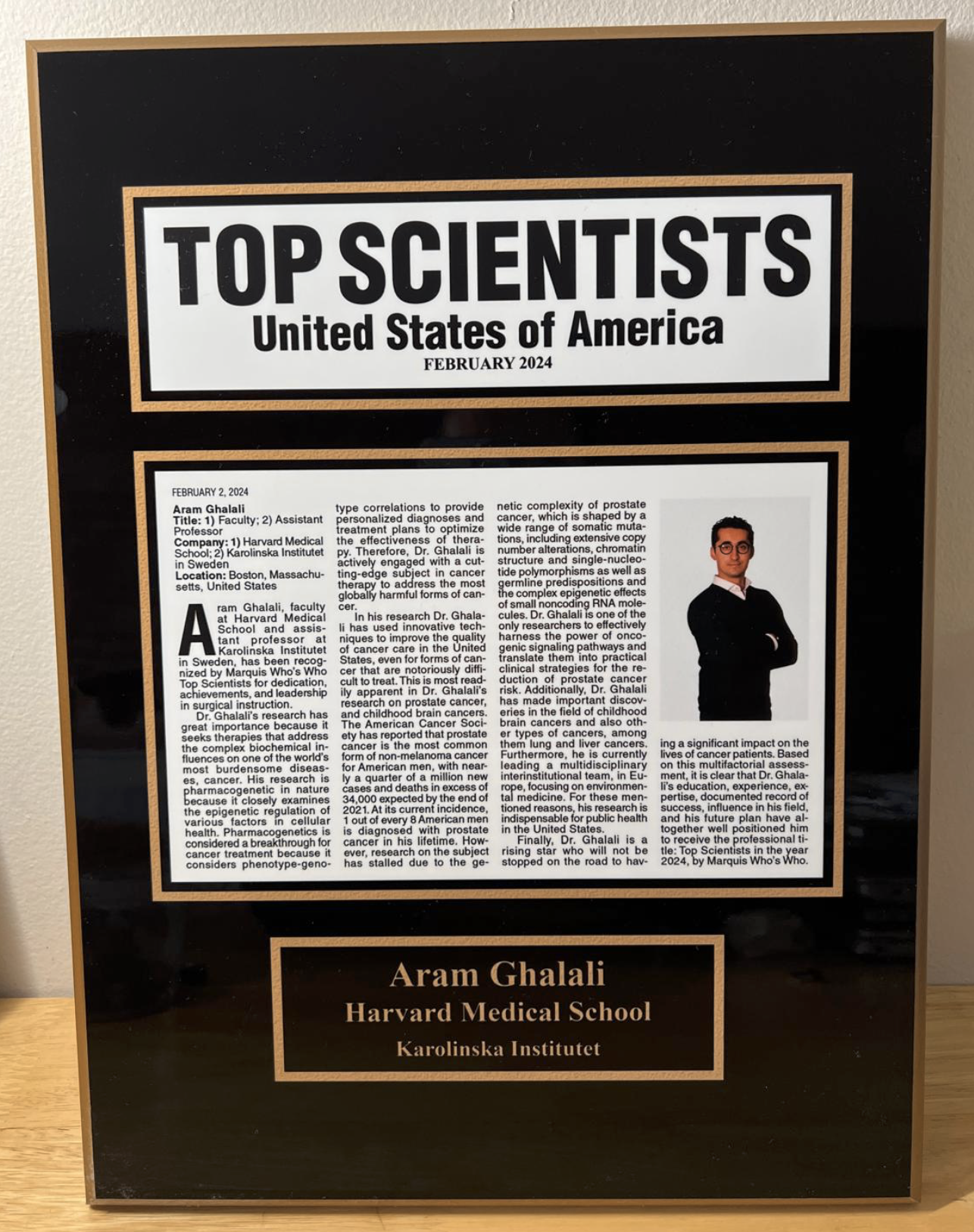
Scientific research on Halabja
Shifting to more personal matters, I wondered how Ghalali felt as a stateless Kurd teaching at one of the best universities in the world. “Statelessness is a strength, not a weakness,” he said. “The political condition and de facto statelessness of the Kurds is proof of their resilience, emphasizing the continued survival of the Kurdish people. Therefore, there is nothing too special about a Kurd being able to reach Harvard. Kurds can reach any place of excellence if the opportunity exists. I am honored to represent my nation in a positive way. My Kurdish background has been and will always be a source of determination and perseverance,” he said.
One way that he has tapped into this background is by harnessing his skill and experience in the medical field to study the long-term effects of the chemical weapons that were used on the Kurds at Halabja in the 1980s. ”The harmful effects of these weapon have been studied in relation to the immediate attack or a short time after, but study of the long-term effects has been neglected,” Ghalali observed.
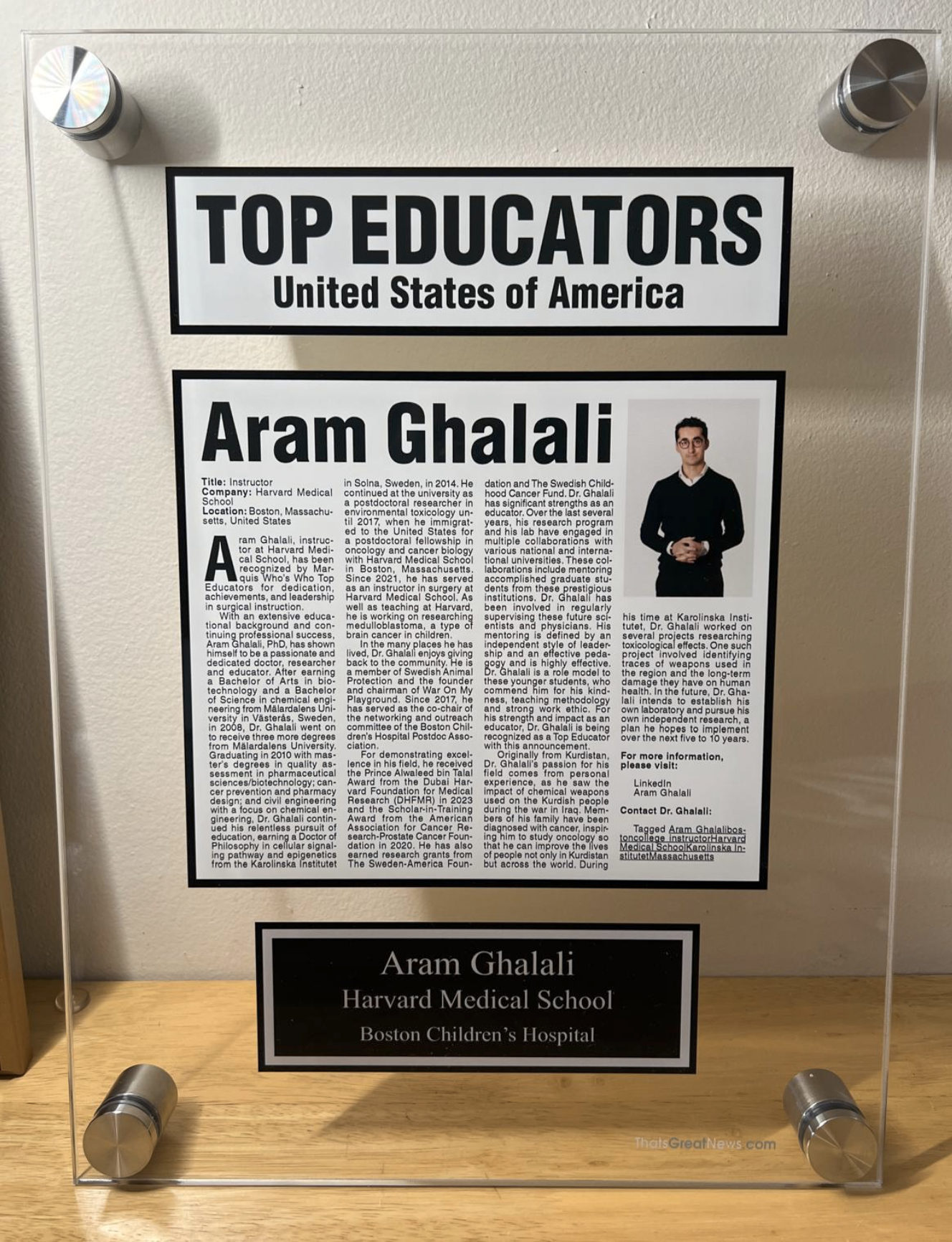
“For instance, in the case of Halabja, it has been 36 years and nowhere in the world are the long-term effects of chemical weapons being researched in detail. Therefore, the work in Halabja is truly a very special case when viewed from a scientific perspective. Currently, the Halabja attack is remembered as simply a humanitarian question, but I am aiming to make it one of genuine scientific inquiry,” he noted.
“There is no knowledge regarding treatment of the long-term damage caused by these weapons,” he continued. “There is an urgent need for reliable and solid research about this important matter. There is a plethora of health consequences suffered by those in Halabja, including an observed increase in cancer case rates, severe respiratory problems, and neurological and psychiatric problems.”
Ghalali is spearheading a group of internationally recognized multi-disciplinary experts from various institutes. “We are analyzing environmental samples from Halabja for chemical weapons agent degradation products and mapping the cellular toxicity profiles of the extracts found in the surrounding environment. With this research, we hope to build public awareness about the Halabja massacre, which remains tragically unrecognized in the international scientific community,” he said.
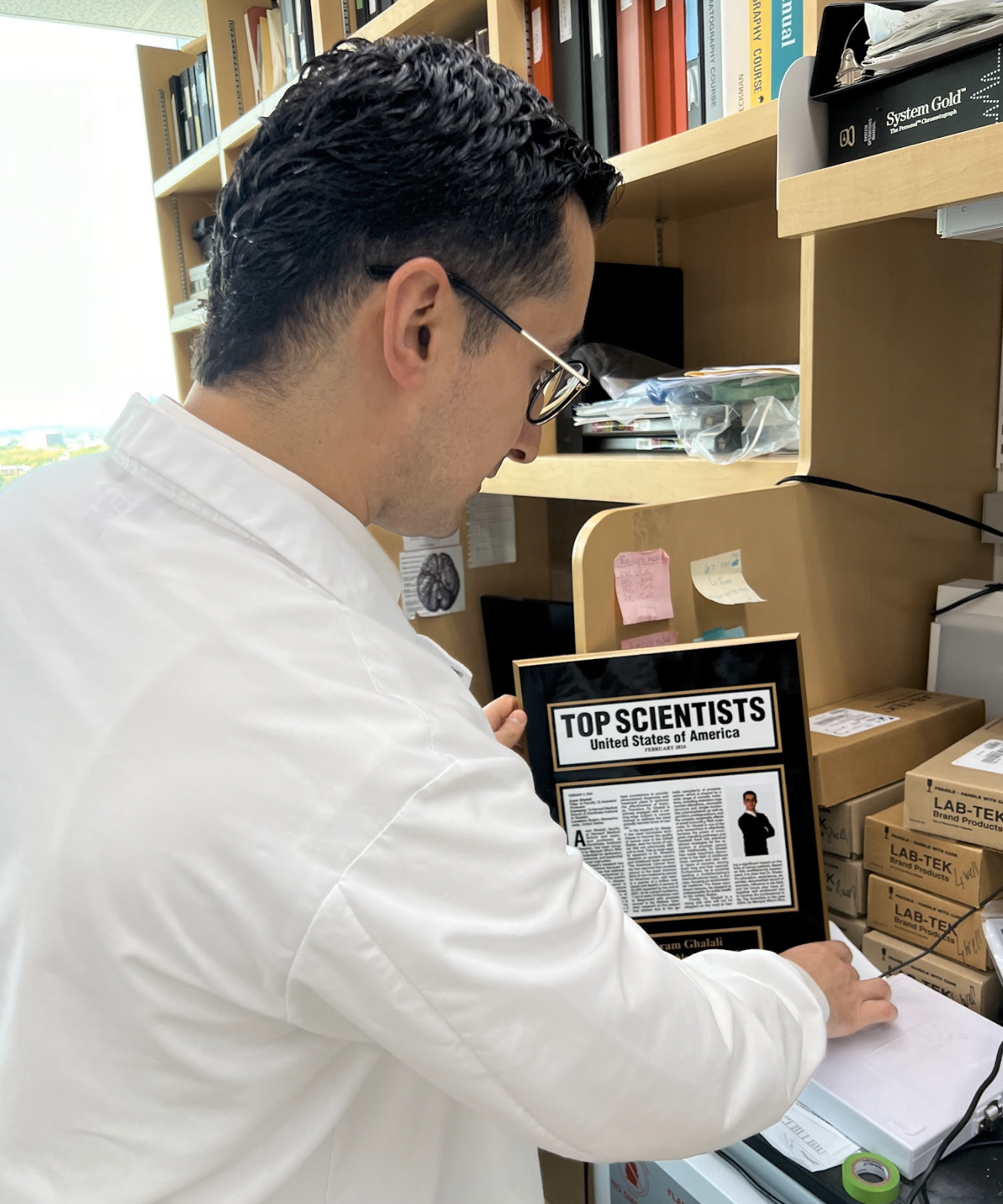
“Rights are given, responsibilities taken”
Being a Kurd is Ghalali’s greatest pride, no matter how far away he is physically from his homeland. “Kurdistan will always be a part of us. As we have been away from Kurdistan for many years, physically speaking, we have left Kurdistan, but emotionally, Kurdistan will never leave us,” he said.
He underscores how Kurdish identity has had a tremendous impact on his personality and career. “Whatever I do, I always make sure to do it to the best of his abilities, so that my actions represent Kurdistan in a noble way,” he said.
Despite his feelings and intentions, unfortunately, he has not been able to develop good collaborative relationships with universities in Kurdistan. He has attempted to reach out to them to establish connections and provide access to state-of-the-art courses to Kurdish students, but has only managed to secure access to Harvard courses for a few students at the University of Sulaymaniyah.
Aside from his academic career, Ghalali is passionate about wildlife conservation and environmentalism. In his spare time, he enjoys attending musicals and classical music concerts and reading, mainly applied history, art, and geopolitics. He is also physically active, playing sports and hiking. Most of all, he loves spending time in nature; the closer he is to nature, the more at peace he feels.
He concluded our conversation with a couple pieces of advice for the younger generation in Kurdistan. “In a nutshell, society is organized by rights and responsibilities,” he said. “It is saddening that many young people today often demand more rights without enough consideration of their own personal responsibilities. Rights are given, but responsibilities are taken. That is, you give when your opponent is weaker,” he said.
“However, strong individuals do not wait for things to be delivered. No matter the obstacles, they take command of their own lives and become masters of their own destinies. One should commit oneself to one’s own promises and goals, then apply discipline and consistency to achieve one’s vision.”
Goran Shakhawan is a Kurdish-American journalist and author based in the United States. He has covered news for several Kurdish news outlets and was a former senior correspondent for Kurdistan24 in Erbil and Washington D.C. He has several published several books in Kurdish.

